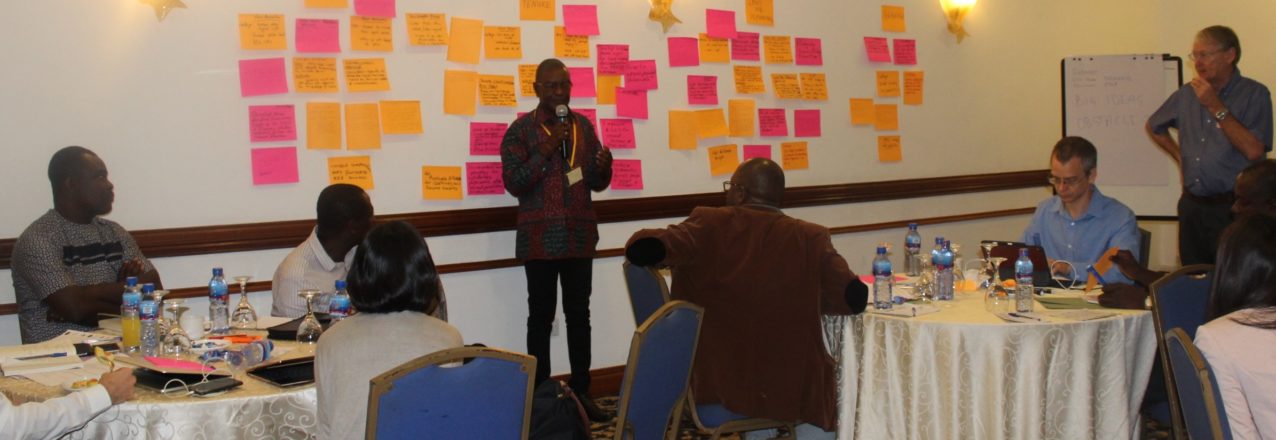INTEGRATED LAND AND RESOURCE GOVERNANCE TASK ORDER UNDER THE STRENGTHENING TENURE AND RESOURCE RIGHTS II (STARR II) IDIQ
EXECUTIVE SUMMARY
The Integrated Land and Resource Governance (ILRG) task order under the Strengthening Tenure and Resource Rights II (STARR II) Indefinite Delivery/Indefinite Quantity (IDIQ) contract, managed by the United States Agency for International Development’s (USAID) Land and Urban Office, is continuing work on sustainability of deforestation-free cocoa originally commenced under the Tenure and Global Climate Change (TGCC) program. ILRG held a planning workshop with key project stakeholders to refine activities for the anticipated two-year bridge phase activity, clarify roles and responsibilities of actors, and define an activity timeline.
The Supporting Deforestation-Free Cocoa in Ghana planning workshop was held November 13 – 14, in Accra, Ghana. A total of 29 participants (some of whom participated via webinar) engaged actively in discussions around four central themes:
- Environmental and social dynamics of deforestation and cocoa, looking at the case of Wassa Amenfi West District;
- Farm-level clarification and documentation of land and tree tenure rights;
- Experiences, challenges, and future perspectives with land use planning in Ghana cocoa forest landscape; and
- Farm-level renovation of cocoa farms.
The cross-cutting theme of gender integration and social inclusion was discussed throughout the workshop and was complemented by a presentation focused on that theme. Additional sessions included a summary of the work by the USAID Communications, Evidence, and Learning (CEL) project to establish baseline assessment indicators and the USAID Climate Economic Analysis for Development, Investment, and Resilience (CEADIR) project’s parallel research on the dynamics of the cocoa economy.
The workshop was successful in generating a wide variety of recommendations for renovating cocoa plantations under the management of small farmers in the Wassa Amenfi West District in a manner leading to the reduction of deforestation of primary and secondary forests resources in the landscape. Various incentives were discussed to improve the adoption of new approaches to cocoa tree rehabilitation, and through the provision of land tenure security to small farmers.
The workshop recommendations will inform the design of the implementation plan for the two-year pilot phase. However, while the workshop identified a wide suite of possible interventions, expectations must be tempered by the budgetary limits of the public and private sector parties involved.


